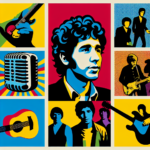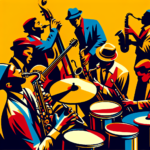Bee Gees Overview

- Estimated Net Worth: $90 million
- Age: Barry Gibb (77), Robin Gibb (died at 62), Maurice Gibb (died at 53)
- Born: Barry (1946), Robin (1949), Maurice (1949)
- Died: Robin (2012), Maurice (2003)
- Gender: Male
- Country of origin: United Kingdom
- Source of wealth: Music, songwriting, and production
Early Life and Background
The Bee Gees, consisting of brothers Barry, Robin, and Maurice Gibb, were born on the Isle of Man and later moved to Manchester, England. Their father, Hugh Gibb, was a drummer and bandleader, which exposed the brothers to music from a young age. Their mother, Barbara Gibb, was a homemaker who supported their musical ambitions. The family later emigrated to Australia, where the brothers began their musical journey.
In Australia, the Gibb brothers attended Northgate State School and later Humpybong State School. Their early exposure to music through their father and the vibrant Australian music scene played a significant role in shaping their future careers. The brothers formed their first band, The Rattlesnakes, in the late 1950s, which later evolved into the Bee Gees.
The Bee Gees’ early influences included rock and roll legends like Elvis Presley and The Everly Brothers. These influences were evident in their early music, which combined rock and roll with harmonious vocals. The brothers’ natural talent for songwriting and performing set the stage for their future success in the music industry.
Despite facing initial challenges, the Gibb brothers’ determination and passion for music kept them going. Their early experiences in Australia, including performing on local television shows and radio programs, provided them with valuable exposure and experience. These early opportunities laid the foundation for their eventual rise to international stardom.
Career Beginnings
The Bee Gees’ career began in earnest when they signed their first recording contract with Festival Records in Australia in 1963. Their early singles, including “The Battle of the Blue and the Grey” and “Three Kisses of Love,” achieved moderate success. However, it was their 1966 single “Spicks and Specks” that became their first major hit in Australia, reaching number one on the charts.
Despite their initial success in Australia, the Bee Gees faced numerous challenges, including limited financial resources and the need to establish themselves in a highly competitive industry. They decided to return to the United Kingdom in 1967, hoping to achieve greater success in the international music scene. This move proved to be a turning point in their career.
Upon their return to the UK, the Bee Gees signed with Robert Stigwood’s management company and secured a recording contract with Polydor Records. Their first international single, “New York Mining Disaster 1941,” became a top 20 hit in both the UK and the US. This marked the beginning of their rise to global fame and financial success.
In the early stages of their career, the Bee Gees earned modest amounts from record sales and live performances. However, their growing popularity and the success of their early singles laid the groundwork for their future financial achievements. By the late 1960s, the Bee Gees were well on their way to becoming one of the most successful musical acts of their time.
Major Breakthroughs
The Bee Gees’ major breakthrough came in the mid-1970s with the release of the “Main Course” album, which marked a shift towards a more disco-oriented sound. The album featured hits like “Jive Talkin'” and “Nights on Broadway,” which became chart-toppers and significantly boosted their net worth. The success of “Main Course” was followed by the release of the “Children of the World” album, which included the hit single “You Should Be Dancing.”
Their biggest financial breakthrough came with their contributions to the “Saturday Night Fever” soundtrack in 1977. The soundtrack, featuring iconic hits like “Stayin’ Alive,” “How Deep Is Your Love,” and “Night Fever,” became one of the best-selling albums of all time, with over 40 million copies sold worldwide. The financial impact of this success was immense, with the Bee Gees earning millions in royalties and sales revenue.
The “Saturday Night Fever” soundtrack not only solidified the Bee Gees’ status as disco legends but also significantly increased their net worth. It is estimated that the Bee Gees earned over $10 million from the soundtrack alone, a substantial amount for the time. This success opened doors to numerous opportunities, including lucrative concert tours and endorsement deals.
In addition to their success with “Saturday Night Fever,” the Bee Gees continued to release hit albums and singles throughout the late 1970s and early 1980s. Their ability to consistently produce chart-topping music ensured a steady stream of income and further solidified their financial standing. By the early 1980s, the Bee Gees had become one of the wealthiest musical acts in the world.
Diverse Investments and Ventures
The Bee Gees were not only successful musicians but also savvy investors. They diversified their income streams by investing in various ventures, including real estate, stocks, and businesses. Barry Gibb, in particular, made significant investments in real estate, purchasing properties in the United States and the United Kingdom. These investments appreciated over time, contributing to their overall net worth.
In addition to real estate, the Bee Gees invested in the stock market, taking advantage of the booming economy of the 1980s and 1990s. Their investments in blue-chip stocks and other financial instruments provided them with a steady source of passive income. It is estimated that their stock investments alone contributed several million dollars to their net worth.
The Bee Gees also ventured into the business world by establishing their own music publishing company, Gibb Brothers Music. This company managed the rights to their extensive catalog of songs, ensuring that they received royalties from their music for years to come. The success of Gibb Brothers Music added another layer of financial security to their portfolio.
Furthermore, the Bee Gees were involved in various philanthropic activities, donating to charitable organizations and causes they believed in. While these contributions were not made with the intention of financial gain, they reflected the brothers’ commitment to giving back to the community. Their philanthropic efforts further enhanced their reputation and legacy.
Peak Earnings
The Bee Gees reached their peak earnings during the late 1970s and early 1980s, a period marked by unprecedented success and financial prosperity. The “Saturday Night Fever” soundtrack alone generated millions in revenue, making it one of the highest-grossing albums of all time. The Bee Gees’ ability to produce hit after hit during this period ensured a continuous flow of income.
In addition to their music sales, the Bee Gees embarked on highly successful concert tours that attracted large audiences worldwide. These tours generated substantial revenue, with ticket sales, merchandise, and sponsorship deals contributing to their overall earnings. It is estimated that their concert tours during this period brought in tens of millions of dollars.
The Bee Gees also capitalized on their popularity by securing lucrative endorsement deals and licensing agreements. Their music was featured in commercials, movies, and television shows, further boosting their income. These endorsements and licensing deals added millions to their net worth, solidifying their financial standing.
By the early 1980s, the Bee Gees’ net worth had reached its peak, with estimates ranging from $100 million to $150 million. Their ability to consistently produce chart-topping music, combined with their savvy investments and business ventures, ensured that they remained one of the wealthiest musical acts in the world. This period of peak earnings marked the pinnacle of their financial success.
Recent Financial Activities
In recent years, the surviving member of the Bee Gees, Barry Gibb, has continued to grow and maintain his wealth through various ventures and investments. Barry has remained active in the music industry, releasing solo albums and performing in concerts. His solo career has been well-received, contributing to his ongoing financial success.
Barry Gibb has also made strategic investments in real estate, purchasing properties in prime locations. These investments have appreciated over time, adding to his net worth. In addition to real estate, Barry has diversified his portfolio by investing in stocks and other financial instruments, ensuring a steady stream of passive income.
Furthermore, Barry Gibb has been involved in various philanthropic activities, donating to charitable organizations and causes he is passionate about. His contributions have had a positive impact on the community and have further enhanced his reputation as a generous and compassionate individual. While these donations are not made with the intention of financial gain, they reflect Barry’s commitment to giving back.
Overall, Barry Gibb’s recent financial activities demonstrate his ability to adapt and thrive in an ever-changing economic landscape. His continued success in the music industry, combined with his strategic investments and philanthropic efforts, ensures that his net worth remains substantial. Barry Gibb’s financial journey is a testament to his talent, resilience, and business acumen.
Philanthropy and Charitable Contributions
The Bee Gees have a long history of philanthropy and charitable contributions. Throughout their careers, the Gibb brothers have donated to various causes and organizations, reflecting their commitment to giving back to the community. Their philanthropic efforts have had a significant impact on numerous individuals and communities worldwide.
One of the most notable charitable contributions made by the Bee Gees was their support for the Diabetes Research Institute. The Gibb brothers were passionate about finding a cure for diabetes, a disease that affected their family. They donated millions of dollars to the institute, funding research and initiatives aimed at combating diabetes.
In addition to their support for diabetes research, the Bee Gees have contributed to various other causes, including children’s hospitals, cancer research, and disaster relief efforts. Their donations have provided much-needed resources and support to organizations working to improve the lives of those in need. The financial impact of their contributions has been substantial, with millions of dollars donated over the years.
Barry Gibb, in particular, has continued the tradition of philanthropy following the deaths of his brothers Robin and Maurice. Barry has supported numerous charitable organizations and initiatives, including those focused on education, healthcare, and the arts. His contributions have made a positive difference in the lives of many individuals and have further solidified the Bee Gees’ legacy of generosity and compassion.
Net Worth Over Time
The net worth of the Bee Gees has evolved significantly over time, reflecting their journey from humble beginnings to international stardom. Here is a timeline of key milestones in their financial journey:
- 1963: Signed first recording contract with Festival Records in Australia.
- 1967: Achieved international success with “New York Mining Disaster 1941.”
- 1977: Major financial breakthrough with the “Saturday Night Fever” soundtrack, earning over $10 million.
- 1980s: Reached peak net worth, estimated between $100 million and $150 million.
- 2000s: Continued success with solo projects and strategic investments.
- 2010s: Barry Gibb’s ongoing financial activities and philanthropic efforts.
The Bee Gees’ net worth has seen significant growth over the decades, driven by their musical success, strategic investments, and philanthropic contributions. Their ability to adapt and thrive in an ever-changing industry has ensured their lasting financial legacy.
Comparison with Peers
When comparing the Bee Gees’ net worth and financial journey to other individuals in the music industry, several similarities and differences emerge. Like the Bee Gees, many successful musicians have diversified their income streams through investments in real estate, stocks, and businesses. However, the Bee Gees’ ability to consistently produce chart-topping music and their contributions to iconic projects like “Saturday Night Fever” set them apart.
For example, contemporaries like Elton John and Paul McCartney have also achieved substantial net worths through their musical careers and investments. Elton John’s net worth is estimated at around $500 million, while Paul McCartney’s net worth is estimated at over $1 billion. Both artists have diversified their portfolios and made strategic investments, similar to the Bee Gees.
However, the Bee Gees’ financial journey is unique in that their success was driven by their collective efforts as a group, rather than individual achievements. Their ability to harmonize and create timeless music as a trio contributed significantly to their financial success. Additionally, their involvement in the disco era and the “Saturday Night Fever” phenomenon provided a unique boost to their net worth.
While the Bee Gees may not have reached the same financial heights as some of their peers, their impact on the music industry and their lasting legacy are undeniable. Their financial journey serves as an inspiration to aspiring musicians and entrepreneurs, demonstrating the importance of talent, perseverance, and strategic investments in achieving long-term success.
FAQ Regarding the Net Worth of Bee Gees
- How did the Bee Gees accumulate their wealth?
The Bee Gees accumulated their wealth primarily through their successful music career, which included hit albums, singles, and concert tours. They also diversified their income through investments in real estate, stocks, and businesses.
- What was the financial impact of the “Saturday Night Fever” soundtrack?
The “Saturday Night Fever” soundtrack was a major financial breakthrough for the Bee Gees, earning them over $10 million in royalties and sales revenue. The soundtrack became one of the best-selling albums of all time, significantly boosting their net worth.
- How did the Bee Gees diversify their income streams?
The Bee Gees diversified their income streams by investing in real estate, stocks, and businesses. They also established their own music publishing company, Gibb Brothers Music, which managed the rights to their extensive catalog of songs.
- What philanthropic efforts have the Bee Gees been involved in?
The Bee Gees have been involved in various philanthropic efforts, including donations to diabetes research, children’s hospitals, cancer research, and disaster relief efforts. Their contributions have had a significant impact on numerous individuals and communities worldwide.
- How has Barry Gibb continued to grow his wealth in recent years?
Barry Gibb has continued to grow his wealth through his solo music career, strategic investments in real estate and stocks, and ongoing philanthropic activities. His ability to adapt and thrive in an ever-changing economic landscape has ensured his continued financial success.
Final Thoughts
In summary, the Bee Gees’ financial journey is a testament to their talent, perseverance, and strategic investments. From their humble beginnings in Australia to their rise as international music legends, the Gibb brothers have achieved remarkable financial success. Their contributions to iconic projects like “Saturday Night Fever” and their ability to consistently produce chart-topping music have significantly boosted their net worth.
The Bee Gees’ savvy investments in real estate, stocks, and businesses have further diversified their income streams and ensured long-term financial stability. Their philanthropic efforts have had a positive impact on numerous individuals and communities, reflecting their commitment to giving back.
Overall, the Bee Gees’ financial journey serves as an inspiration to aspiring musicians and entrepreneurs. Their ability to adapt and thrive in an ever-changing industry, combined with their talent and business acumen, has left a lasting legacy in the music world and beyond.








